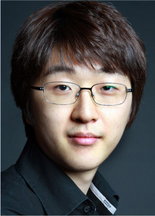By Daniel Hathaway
Cleveland, OH — August 2, 2011


On Wednesday, we’ll hear from an American (Eric Zuber), and a Russian (Alexey Chernov) in the afternoon, then a German (Alexander Schimpf) and a British/Polish pianist (Mateusz Borowiak) in the evening.


